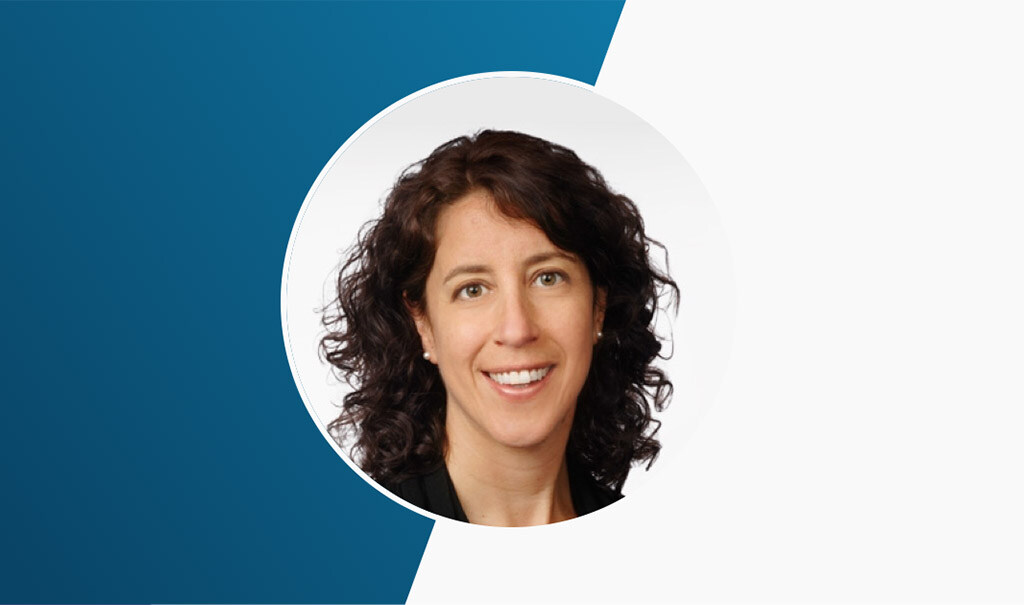
March 07, 2018
Healthcare education tips from expert Beccah Rothschild

Sophia Lee
Sophia is on the communications team at Amino, where she helps share industry perspectives.
"Share information that’s data-driven, evidence-based, and comes from a trusted third-party."
Last week, we sat down with with Beccah Rothschild, a health and adult literacy expert with more than 20 years of experience. Her passion revolves around ensuring that information is accessible and available to everyone — regardless of educational, literacy, cultural, or linguistic background. In this Q&A, we cover topics that range from tips for effectively educating people on healthcare to the role employers play in protecting their employees from financial harm.
You educate patients about the overuse of healthcare treatments. What are some commonly over prescribed treatments, and what is your advice to get people to think twice about them?
Examples of commonly overused tests, procedures, and medications include antibiotics for colds, imaging tests for low back pain and headaches, and C-sections in healthy pregnancies. These may not be the most overused treatments or tests, but they’re ones healthcare consumers frequently encounter.
Another interesting overuse case is the Pap test. For a long time, the standard was to get one annually, but the latest research shows that most women — depending on their age, medical history, and risks — only need one every three to five years. When I started to write about this topic, a lot of women — especially aged 45-50 and above — pushed back saying they were taught to get it every year. It’s interesting because these women don’t actually want to get this uncomfortable test done annually (who would?), but it just goes to show how challenging it is to change the culture around medical testing.
In terms of my best advice, I’ve found that if you talk in generalities about the physical and financial harm of overuse, people are less inclined to act in their best interest. For instance, if you say: “ordering unnecessary tests makes insurance premiums go up and causes people to pay more for care,” it doesn’t resonate because it doesn’t hit you personally. But if you say: “if you get this test done, you’re going to pay $2,000 out-of-pocket for something that you don’t need — and might even harm you,” it clicks. You really need to appeal to people on a personal level.
What role do employers play in helping their employees with regard to health literacy?
The employer has a huge responsibility to ensure that the health insurance information employees receive is readable, understandable, and written in a way that’s not full of jargon. The average person doesn’t understand what a deductible, copay, or coinsurance is, so the employer has the obligation to make sure this type of information is provided in a way that employees can understand, use, and act on it.
Insurance companies play a role in this as well. Fortunately, insurance companies have really stepped up to try and make materials easier to understand — but there’s still a long ways to go. There’s been huge progress though compared to back in 2003 or 2004 when health literacy was just becoming a much wider-known issue, which is around when I was involved in starting up the California Health Literacy Initiative — the first statewide health literacy project ever. Ultimately, it must be a shared responsibility between both insurance companies and employers to make sure the healthcare they provide is easy to understand and access.
It’s also important for employees to trust the information from their employers. A good way to do this is for employers to share information that’s data-driven, evidence-based, and comes from a trusted third-party. People also need to understand that the information they’re getting from their employer isn’t going to impact their benefits. It’s common for employees to be worried about going to the HR or management and saying “I’m considering getting pregnant” or “I have a chronic condition” because they fear retribution, judgement, being passed over for a promotion, or having certain benefits taken away.
What’s your advice for chronically ill patients who frequently interact with the healthcare system?
Ask questions and take notes. A few years ago, my mom — who lives across the country from me — simultaneously had two cancers. For every single appointment, my parents conference called me in. And before every appointment, I would send them a list of questions ahead of time. You would never go into a meeting without an agenda, so why would you go to a doctor’s appointment without one?
While on the call, I would take notes verbatim while my dad asked the questions. Doctors knew that I was on the phone and taking notes, so it was very transparent — especially when I would pipe in with clarifying questions. After the appointment, I would write up the notes and distribute them to members of the family so we all knew exactly what was going on and could follow up with more questions if needed.
If you don’t do this, or some version of this, you leave the appointment and forget things or perhaps misinterpret them. You can also always ask at your appointment if you can record the conversation. And if the doctor says no, find someone else to go to. Don’t forget that the healthcare provider works for you, not the other way around. I can’t stress that enough.
What are your biggest takeaways when it comes to educating people about healthcare?
I would say there are two major takeaways:
- Keep it short and simple. It’s hard to do this because healthcare is so complex. I always want people to have all the information possible so they can make the best decision. But what I learned is that very few people want that — whether it’s an executive in the C-suite or someone with limited literacy skills, most people don’t have the time or capability to read through so much information.
- If you tell someone what not to do, you also have to tell them what to do. It’s important to frame things in a positive way for people who are in pain, frustrated by their situations, or scared. For instance, if you say “it’s not a good idea to get treatment ABC,” you should also say “instead, I’m going to give you XYZ and it will still help you.” People need to be reassured that they have options and that they’re going to be ok.
If you could wave a magic wand and make a single change to improve the future of health literacy, what would you wish for?
I would do a major overhaul of our culture of healthcare. I wish it would change so that patients understand they are consumers and see healthcare as a consumer good.
For instance, when you go to buy a car or fridge, you always ask how much it costs, how long it will last — and you negotiate on the price. But when it comes to healthcare, people don’t know that the price of filling a prescription varies widely depending on where you go. They don’t know that you can negotiate costs with a hospital if you’re paying out-of-pocket or with cash. They don’t know that the quality of care varies wildly. And it’s all because they don’t think of healthcare as a consumer good, so they don’t ask the important questions.
I want to shake up the culture of healthcare and make these conversations actually happen.
Connect with our Partnership Team
Want to learn how we can help your members transform their healthcare experience in 2025?